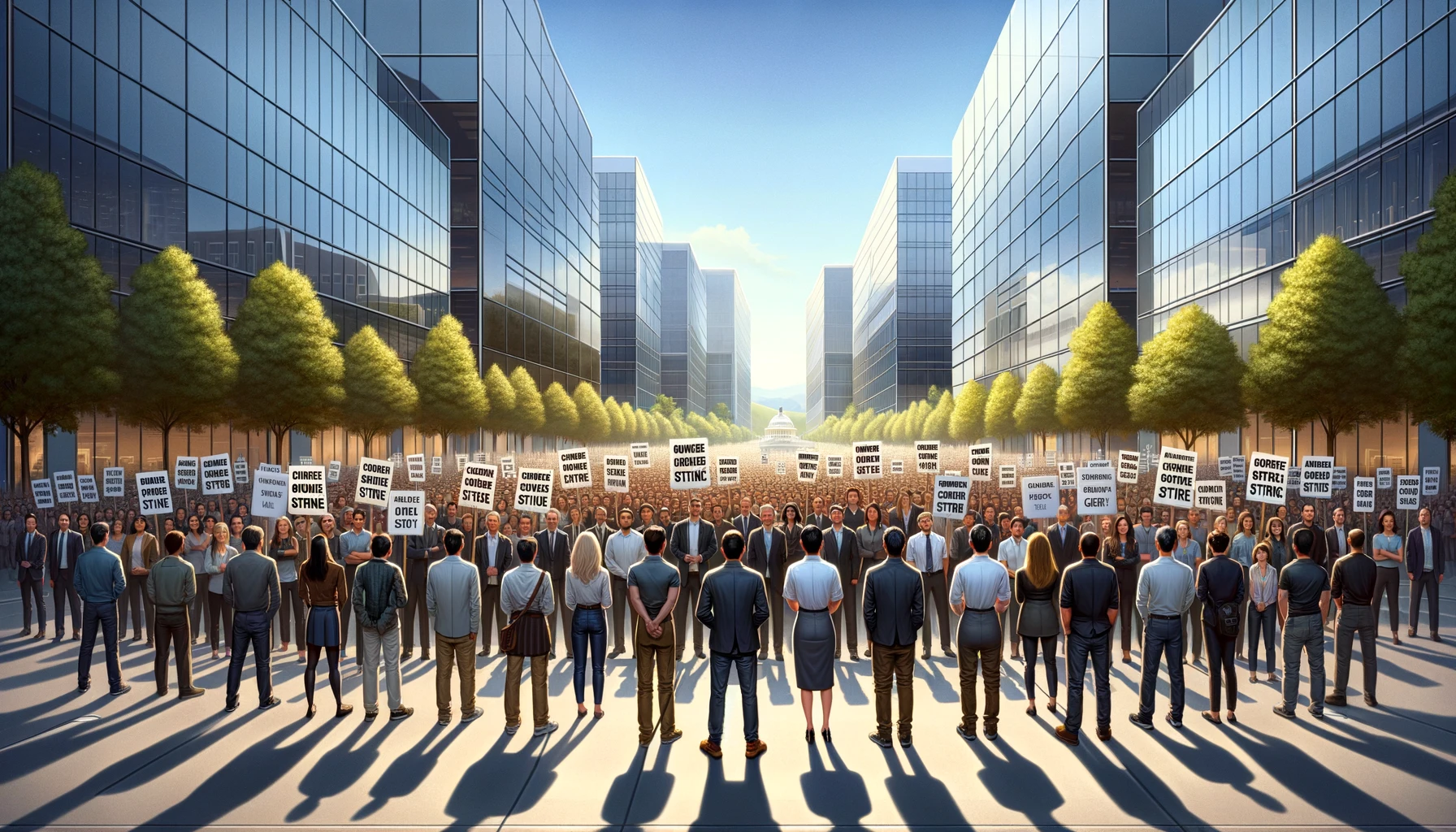
Throughout history, strikes have been critical in changing industries and showing how important workers are to our society. Take the auto workers’ strikes in the 1930s and 1940s, like the big sit-down strike at General Motors in 1936-1937. These strikes were a big deal for getting better pay and safer jobs for workers in the United States. The farming world has seen significant changes, too, Like the Delano Grape Strike from 1965 to 1970, where farmers stood up for fairer prices and safer working conditions. These actions were critical moments in their fields, showing that when workers come together, they can make a big difference and stand up for what they deserve.
The effects of these strikes were huge and touched everyone’s lives. When auto workers stopped working, cars weren’t being made, which led to shortages and problems for people who wanted to buy cars and the whole economy that relied on transport. Similarly, when farmers didn’t send their produce to markets, it caused prices to go up and down like crazy and made it hard for people to get the food they needed. These events from the past show us how everything in our world is connected and how big of an impact strikes can have on all of us. They remind us that workers, whom we might not always think about, are essential for keeping our daily lives and the economy running smoothly. Now, let’s think about what could happen if workers in another critical area today – software development – decided to go on strike.
Software Engineers Strike
The thought of 28.7 million software developers downing tools in 2024 is a scenario that could send shockwaves across the globe. According to Statista, the current number of software developers worldwide is staggering. Still, a fascinating application of the Pareto principle suggests that a crucial fraction of these developers are behind most of the code powering today’s digital world. So, what unfolds if these unsung heroes of the digital age decide to strike?
Immediate Disruptions
The tech landscape would face the brunt of this strike from the get-go. Software developers are the backbone of the industry, responsible for everything from routine updates to groundbreaking new products. Without their input, tech companies would struggle to maintain current operations, let alone innovate or expand. This would not only affect the companies directly involved but also have a cascading effect on businesses and services reliant on their technologies.
Economic Impact
The implications of a prolonged strike would ripple through the economy. Given their reliance on software and digital platforms, critical infrastructure, supply chains, and financial markets could face disruptions. The potential for significant tech giants MAANG (Meta, Amazon, Apple, Netflix, Google) to face existential threats is not outside the realm of possibility. Such a scenario could lead to widespread economic instability, highlighting the systemic importance of software developers.
Innovation and Competition
A halt in the relentless pace of technological advancement is one of the more profound long-term effects of a developers’ strike. The delay in research and development initiatives could mean postponing or even cancelling next-generation technologies. This slowdown would affect the tech industry and all sectors that depend on technological innovation to drive growth and competitiveness.
Societal Reflection
Beyond the immediate and tangible impacts, a strike of this magnitude could serve as a wake-up call to society at large. It would force a reevaluation of our dependence on technology and the individuals who create and maintain it. The realisation that a small percentage of developers contribute significantly to the digital infrastructure we rely on daily underscores the need for fair recognition and compensation for their efforts.
A Call to Action
Interestingly, these developers are not among the world’s wealthiest people despite their pivotal role. This discrepancy raises questions about the value we place on the work that has become foundational to our way of life. As we ponder the potential impacts of a software developers’ strike, we must consider how to better support and compensate the minds behind the digital curtain. It’s time to ensure that those who drive the digital economy are rewarded commensurate with their contribution.
Conclusion
The hypothetical scenario of 28.7 million software developers striking in 2024 is a stark reminder of these professionals’ critical role in maintaining and advancing our digital world. While speculative, this situation prompts meaningful discussions about fair compensation, working conditions, and the societal value of software developers. As we move forward, we must recognize and rectify the disparities facing the architects of our digital future, ensuring that innovation and equity go hand in hand.

 The Ripple Effects of a Software Engineers’ Strike in 2024
The Ripple Effects of a Software Engineers’ Strike in 2024